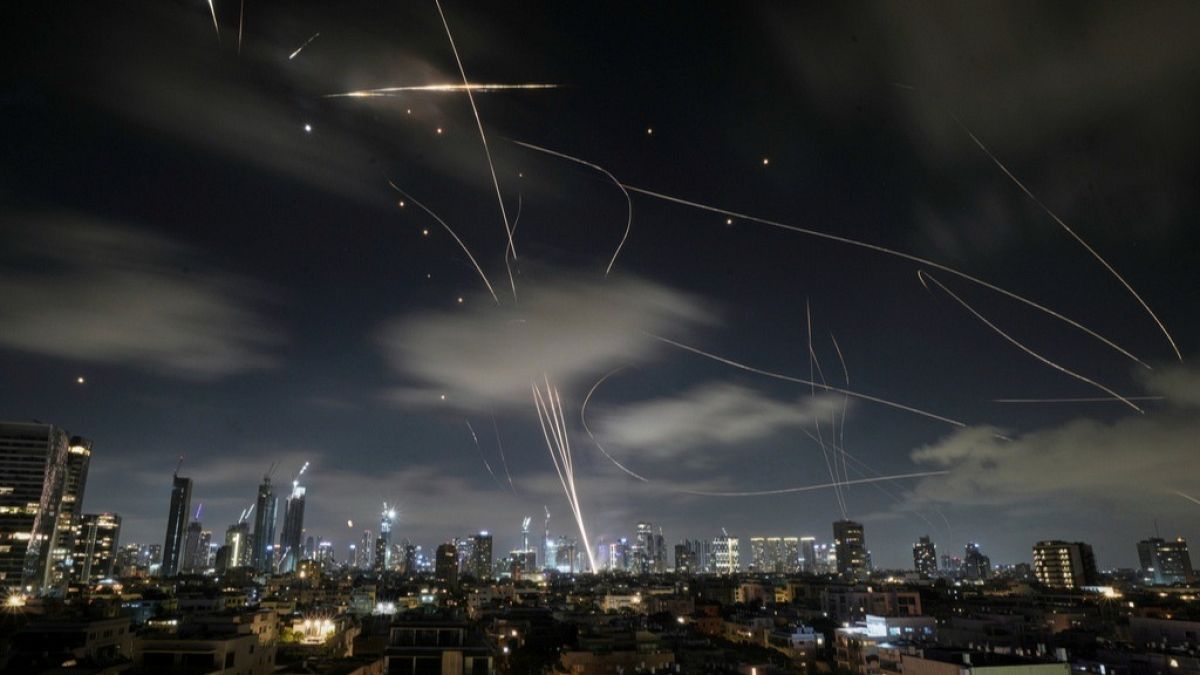Early Wednesday, residents of Tehran experienced a series of powerful explosions as Israel intensified its airstrike campaign targeting Iran. The sounds of blasts reverberated through the capital around 5 am local time, signaling a dramatic escalation in conflict between the two nations.
Iranian officials have yet to acknowledge the recent strikes, which have become more frequent since hostilities resumed last Friday. Israel had previously issued warnings about potential strikes on a neighborhood south of Mehrabad International Airport, which encompasses residential areas, military facilities, pharmaceutical companies, and industrial sites.
The renewed airstrikes followed a stark warning from U.S. President Donald Trump, who urged Tehran’s inhabitants to evacuate and called for the country’s unconditional surrender. Trump, having cut short his attendance at the Group of Seven summit in Canada, addressed the intensifying Israel-Iran conflict, stating, “I’m not looking at a ceasefire. We’re looking at better than a ceasefire.”
In further comments, Trump elaborated on Washington’s objectives, emphasizing a desire for a “real end” to the tensions, while making it clear that negotiations were not his priority. He issued a pointed warning to Iranian Supreme Leader Ayatollah Ali Khamenei, stating that the U.S. is aware of his location and called for Iran’s “UNCONDITIONAL SURRENDER.” Though it remains unclear if Trump meant a total halt to Iran’s nuclear program or simply an end to the current wave of aggression, he assured there were no immediate plans to target Khamenei directly, mentioning that patience with Iran is dwindling.
In the interim, Iranian military leaders declared their commitment to retaliate against Israel. Major General Abdul Rahim Mousavi, the commander of Iran’s army, stated, “The operations carried out so far have been solely for the purpose of warning and deterrence. The punishment operation will be carried out soon.”
In a related development, reports emerged regarding the alleged assassination of General Ali Shadmani, the recently appointed leader of Iran’s Revolutionary Guard Corps’ Khatam al-Anbiya Central Headquarters. His appointment followed the assassination of his predecessor, Gholam Ali Rashid, in an Israeli airstrike.
Israel’s military reported a focused campaign of airstrikes targeting 12 missile launch sites and storage facilities. Sirens echoed through southern Israel as Iran launched barrages of missiles, most of which were reportedly intercepted, leading Israeli officials to advise their citizens to remain close to shelters. Fortunately, initial reports indicated no casualties.
As airstrikes rattled the capital, Tehran’s streets fell eerily quiet. The historic Grand Bazaar, typically bustling with activity, had many shops closed, reflecting the city’s tense atmosphere. Additionally, traffic jams were reported as many residents fled to the Caspian Sea, a favored retreat, with long lines extending from gas stations.
The International Atomic Energy Agency (IAEA) reported significant damage to Iranian nuclear facilities following Israel’s initial airstrikes, particularly at the Natanz enrichment site. Satellite images confirmed damage to underground enrichment halls, essential for Iran’s uranium enrichment efforts, which Israel contends are aimed at developing nuclear weapons. Iran maintains that its nuclear program is peaceful. Nevertheless, the IAEA continues to express concerns about Iran’s enriched uranium supply, which could theoretically facilitate the construction of nuclear bombs.
Despite Israeli Prime Minister Benjamin Netanyahu asserting that the airstrikes have delayed Iran’s nuclear ambitions, Israel faces substantial challenges in its attempts to target Iran’s fortified Fordo facility, which is safeguarded by its mountainous location. Effective strikes on Fordo would necessitate U.S. military intervention, potentially deploying B-2 stealth bombers equipped with advanced bunker-busting munitions.

